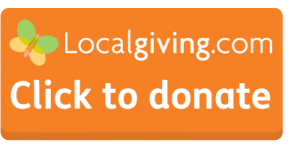Here at EDNE we know that Christmas can be a difficult time of year for many people. This can be for several reasons; struggling with eating distress being one of them. You may also be coping with grief and loss, finding the dark days hard, having high levels of anxiety and feeling the pressures around having a “good” Christmas for example.
Our Deputy Counselling Lead Rachel has held two workshops on Coping with Christmas this year and thought it might be helpful to post some of the strategies and coping techniques to try so anyone who couldn’t attend the workshops can still benefit from support.
Planning
Make a plan for what feels comfortable for you to eat. If you feel able to, discuss this with someone else. This can help to set expectations and may release pressure. Make sure you plan at a time that feels ok for you and perhaps at least a week before.
What you can control
Look at what you can control in stressful food situations. Possibilities are:
• What plate/dish you eat from.
• What cutlery you use.
• Where you sit.
• What you drink and what glass you use.
• What you wear for example you could wear something you feel comfortable in or your favourite outfit.
• Stepping away for a breather or rest. You could get 5 minutes fresh air in a garden/yard.
Strategies
Plan a distraction for afterwards such as listening to music, colouring in, playing a game, or watching something.
Do a self-care activity afterwards such as having a shower or bath; giving yourself a facial or a hand massage; having a nap or doing something you enjoy.
Writing down how you feel might be helpful. You can either keep it or get rid of it after. You could do this before and after. Perhaps after, you might realise it was’t as bad or scary as you thought it would be. Remember this as proof that things can go okay for future situations and events.
Write down the memories and positives from the situation, such as spending time with people you like, rather than focusing on the food.
Recovery
Perhaps use the festive break to take time for your recovery journey. Think about goals you’d like to work towards. You could make a recovery collage or a recovery board on Pinterest. A recovery playlist might be helpful to make with music that motivates you and/or makes you feel positive. It can also be helpful to write down incentives to eat and/or reasons to recover and keep the list beside you at mealtimes to remind yourself of why you want to keep going.
Coping Strategies
Grounding techniques
Grounding techniques help us to focus on the here and now instead of worrying about past or future things. They can slow our thoughts down as well. Some examples include:
Colour grounding technique – pick a colour and name all the things you can see with that colour.
Category technique – think of a category for example dog breed, country, or clothes brand, and see how many you can write down or think about.
Breathing exercises
There are many different breathing exercises that can be helpful to use when you’re feeling anxious as it helps to slow down our breathing and to feel calmer. Some examples include:
• 4-7 breathing
• Five finger breathing
• Square breathing
Mantra/Affirmations
Create a positive mantra for yourself, for example “I can do this” or “I am stronger than I think I am” or “This feeling will pass.”
People and helplines
Call or text a support buddy.
Reach out to a help line:
Shout – 24/7 text support at 85258
Samaritans – 24/7 free phone service at 116 123; email service: jo@samaritans.org
Beat – helpline 0808 801 0677 (open 365 days a year from 9am-midnight during the week; and 4pm-midnight on weekends and bank holidays. From 24th December to 3rd January, the helpline is open 4pm-midnight).
Email support: help@beateatingdisorders.org.uk
One-to-one Web Chat: One-to-One Web Chat – Beat (beateatingdisorders.org.uk)
Beat also offers online support groups for different types of eating distress.
Follow EDNE on our social media – Facebook, Twitter and Instagram. Although EDNE’s office is closed from the end of the day on the 23rd of December to 3rd January, we will be having daily posts that you may find beneficial to look at over the festive break.
We also have a Pinterest page with many boards that could be useful. If you think of a board that could be helpful that we don’t have, please feel free to email ideas/suggestions in to myself or our enquiries email address.
Our social media handles are:
Instagram: eatingdistressnortheast
Facebook: Eating Distress North East
Twitter: @edneuk
Pinterest: eatingdistressNE
Rachel Cowey, Deputy Counselling Lead
Rachel.Cowey@edne.org.uk
Find out more about our services and how to refer yourself or someone else.
Related Posts
Volunteer Psychotherapy Placements
We are the only specialist eating distress charity in the North East and aim to…
Eating Distress North East awarded a team of business experts and funding
Eating Distress North East (EDNE) has had the impact of our current services and future…


